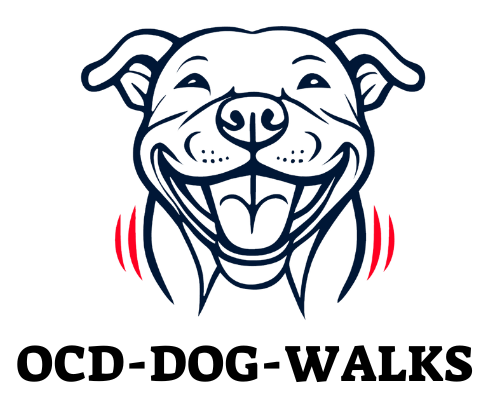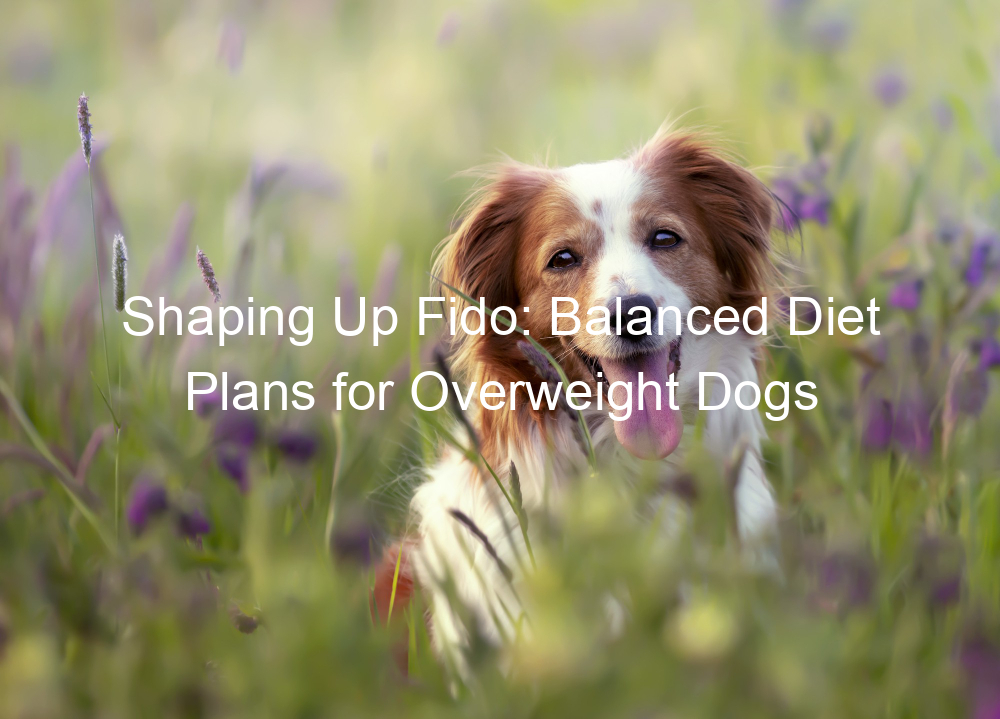Introduction to Dog Obesity and the Importance of a Balanced Diet
As dog owners, it’s our responsibility to ensure our furry friends are healthy and happy. One of the most common health issues among dogs today is obesity. Just like in humans, obesity in dogs can lead to a variety of health problems. Understanding the prevalence of overweight dogs, the role of a balanced diet in canine weight management, and the importance of a healthy weight for dogs is crucial for every dog owner.
- Understanding the prevalence of overweight dogs
- The role of a balanced diet in canine weight management
- Importance of a healthy weight for dogs
In conclusion, dog obesity is a serious issue that can significantly impact your dog’s health and quality of life. As a responsible dog owner, it’s important to understand the role of a balanced diet in maintaining your dog’s healthy weight. Remember, a healthy dog is a happy dog!
Recognizing an Overweight Dog
It’s important to recognize when your dog is overweight, as it can lead to serious health problems. Here are some signs to look out for and the potential risks associated with dog obesity.
- Physical signs of an overweight dog
- Health risks associated with dog obesity
Recognizing an overweight dog is the first step towards helping them get back to a healthy weight. If you think your dog might be overweight, it’s important to seek advice from a vet. They can provide guidance on the right diet and exercise plan for your dog.
Dog Weight Loss Diet Plan: An Overview
When it comes to your furry friend’s health, maintaining a balanced diet is crucial. A proper diet can help your dog lose weight and lead a healthier, happier life. Let’s take a look at the components of a healthy dog diet.
Components of a Healthy Dog Diet
A healthy dog diet is composed of several key components. These are essential for your dog’s overall health and well-being, and each plays a unique role in their diet.
- Proteins: Proteins are the building blocks of your dog’s body. They help in growth, muscle development, and tissue repair. Sources of protein for dogs include meat, fish, and eggs.
- Carbohydrates: Carbohydrates provide energy for your dog. They are found in foods like grains, fruits, and vegetables. While dogs don’t require as many carbohydrates as humans, they still play a vital role in their diet.
- Fats: Fats are a concentrated source of energy for dogs. They also help in the absorption of certain vitamins. Healthy sources of fats for dogs include fish oil and flaxseed oil.
- Vitamins and Minerals: Vitamins and minerals are essential for your dog’s health. They support various bodily functions, such as bone health, digestion, and immune function. They are found in a variety of foods, including fruits, vegetables, and meats.
Remember, every dog is unique, and their dietary needs may vary based on their age, breed, size, and health status. Always consult with a vet before making any significant changes to your dog’s diet.
Creating a Balanced Meal for Overweight Dogs
When it comes to our furry friends, maintaining a healthy weight is crucial. Overweight dogs can face numerous health issues, so it’s important to understand how to create a balanced meal for them. Let’s explore this topic in detail.
- Understanding Your Dog’s Nutritional NeedsEvery dog is unique, and so are their nutritional needs. Factors such as age, breed, activity level, and health status can influence what and how much your dog should eat. Generally, a balanced diet for dogs includes proteins, carbohydrates, fats, and essential vitamins and minerals. Proteins are vital for cell growth and repair, while carbohydrates provide energy. Fats are necessary for brain development, and vitamins and minerals support overall health. It’s important to consult with your vet to understand your dog’s specific nutritional needs.
- Choosing the Right Weight Loss Food for DogsThere are many weight loss foods available for dogs, but not all are created equal. When choosing a diet for your overweight dog, look for foods that are high in protein and fiber but low in fat. Protein will help maintain muscle mass during weight loss, while fiber can help your dog feel full. Avoid foods with added sugars or fillers. Remember, it’s always best to consult with your vet before making any major changes to your dog’s diet.
- Portion Control and Meal FrequencyEven the healthiest food can contribute to weight gain if your dog eats too much of it. Portion control is key when it comes to feeding overweight dogs. Use a measuring cup to ensure your dog is getting the right amount of food, and avoid free-feeding. Instead, establish a regular feeding schedule. Most dogs do well with two meals a day, but your vet can help you determine the best feeding routine for your dog.
In conclusion, creating a balanced meal for overweight dogs involves understanding their nutritional needs, choosing the right weight loss food, and practicing portion control. With these strategies, you can help your dog achieve and maintain a healthy weight.
Case Study: Successful Dog Diet Plan for Weight Loss
Let’s take a closer look at a real-life example of a successful dog diet plan for weight loss. This case study will provide you with a better understanding of how a balanced diet can help your furry friend shed those extra pounds and lead a healthier life.
- Background of the overweight dog
- Implementation of the diet plan
- Results and key takeaways
In conclusion, a well-balanced diet and regular exercise can help your dog maintain a healthy weight. It’s important to remember that every dog is unique and what works for one might not work for another. Always consult with a veterinarian before starting any diet plan for your dog.
Additional Tips for Canine Weight Management
Now that we’ve covered the basics of dieting for overweight dogs, let’s delve into some additional tips that can help manage your dog’s weight effectively. One of the most critical aspects of weight management is exercise and physical activity.
Exercise and Physical Activity
Exercise is not just beneficial for humans, but it’s also crucial for our furry friends. Regular physical activity helps dogs maintain a healthy weight, improves their cardiovascular health, and enhances their overall well-being. Let’s explore the importance of exercise for overweight dogs and some suitable exercises they can engage in.
- Importance of regular exercise for overweight dogs
- Suitable exercises for overweight dogs
- Walking: This is a low-impact exercise that’s easy on the joints. Start with short walks and gradually increase the distance.
- Swimming: Swimming is a great exercise for overweight dogs as it provides a full-body workout without putting stress on the joints.
- Playing fetch: This can be a fun way for your dog to get some exercise. Just make sure to keep the sessions short and sweet.
Remember, before starting any new exercise regimen for your overweight dog, it’s best to consult with a vet. They can provide guidance on the most suitable exercises based on your dog’s breed, age, and health condition.
Regular Vet Check-ups
One of the most important steps in maintaining your dog’s weight is regular vet check-ups. These visits play a crucial role in monitoring your dog’s health and weight. Let’s explore this further.
- Role of Vet in Monitoring Dog’s Weight
- How Often Should You Visit the Vet
Remember, regular vet check-ups are an essential part of your dog’s weight management plan. Your vet can provide valuable advice and support to help your dog reach and maintain a healthy weight.
Conclusion: Maintaining a Healthy Weight Dog Food Diet
As we wrap up our discussion on keeping our furry friends healthy and happy, let’s revisit the key points and take steps to ensure our dogs maintain a balanced diet and a healthy weight.
- Reiterating the importance of a balanced diet:
- Encouragement for owners to take proactive steps:
In conclusion, maintaining a healthy weight dog food diet is not just about feeding your dog the right food, but also about creating a balanced lifestyle that includes regular exercise and vet check-ups. It’s a commitment, but the rewards of seeing your dog healthy and happy are worth it. So, let’s start today and make a difference in our dog’s life.






